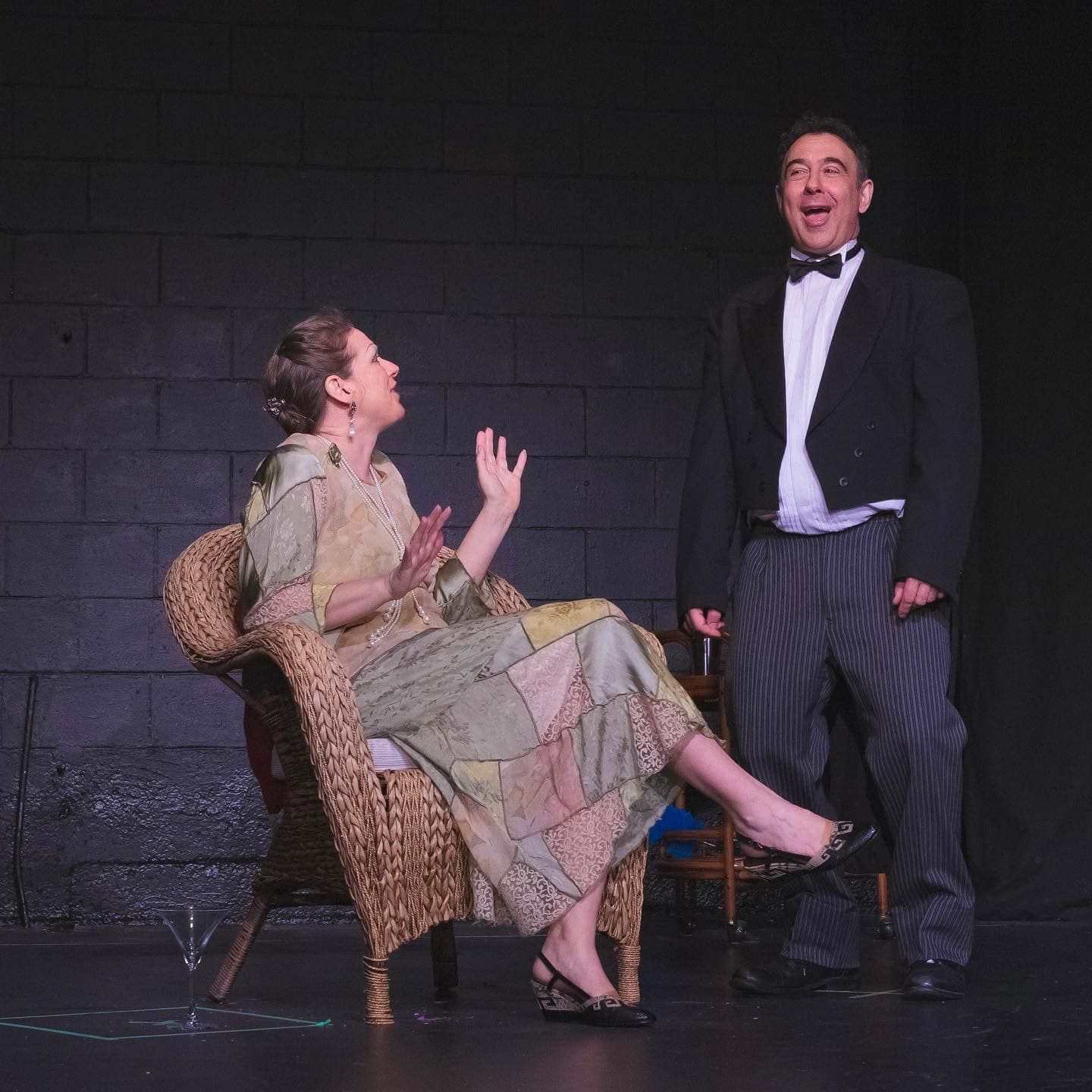Review: Wonderful
A Laugh for Literary Lovers
Reviewed by Nadia Freeman
Richard Huber’s Wonderful opens with Lady Hermione and her butler Roberts staring straight past the audience. We can not tell immediately what their relationship is, if they are fond of each other, if there is tension, or how long they have known each other.
The set is barebones, with a chair, and a small drink cart to ensure Lady Hermione’s thirst is consistently supplied for. This simple set-up leaves the audience to focus on the core of the presentation, which is the two characters and the relationship between them.
Lady Hermione’s (played by Sarah Barham) make-up and costume indicate she is a mature woman set up with all the comforts of any well-to-do person in England in the 1920s and has not had to worry about working or economic struggles. So much so that she chooses not to engage in conversations about hardship such as the war. And Roberts (Blaise Barham) her butler while initially maintaining a formal employee demeanour with her (between their quick-witted sequences of banter), we see in fact approaches Hermione’s needs with the intuition of someone who has known her a very long time.
This is a story about a relationship between two people who have the intimacy of knowing each other their whole lives but are confined by the societal roles they are expected to play. I was fascinated by the different devices used to tell this story and scenes of importance, including repetition of descriptions of scenery, objects and sounds. As well as how the narrative dipped in and out of time and place seamlessly to a point where sometimes I wasn’t sure of when the story was placed and how old the characters themselves were.
Wonderful is wonderfully funny. Hermione’s character who finds most things ‘annoying’ is excentric and playful, someone who has purposely decided to maintain a childish facade that brings about some fantastic absurdist humour. She and Roberts bounce off each other in a way that throughout the course of the play bring us the audience into the personal jokes that they have shared together throughout their lives. Some extremely funny moments are the continuous literary and film nods that are scattered throughout the script and the expressions of the cast at the scene ends.
It would be brilliant to see this show incorporating other features such as sound design, as there are particular references to sense ‘the sound of water’ that could help to bring an immersive experience for the audience.
Wonderful can be best described as comfort and tension swirled together in a marble cake batter; a literary drama that covers war, sex, marriage and a reflection on the constraints of wealth.

